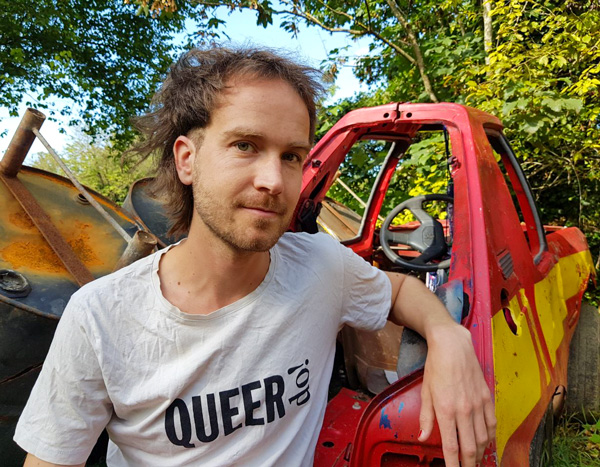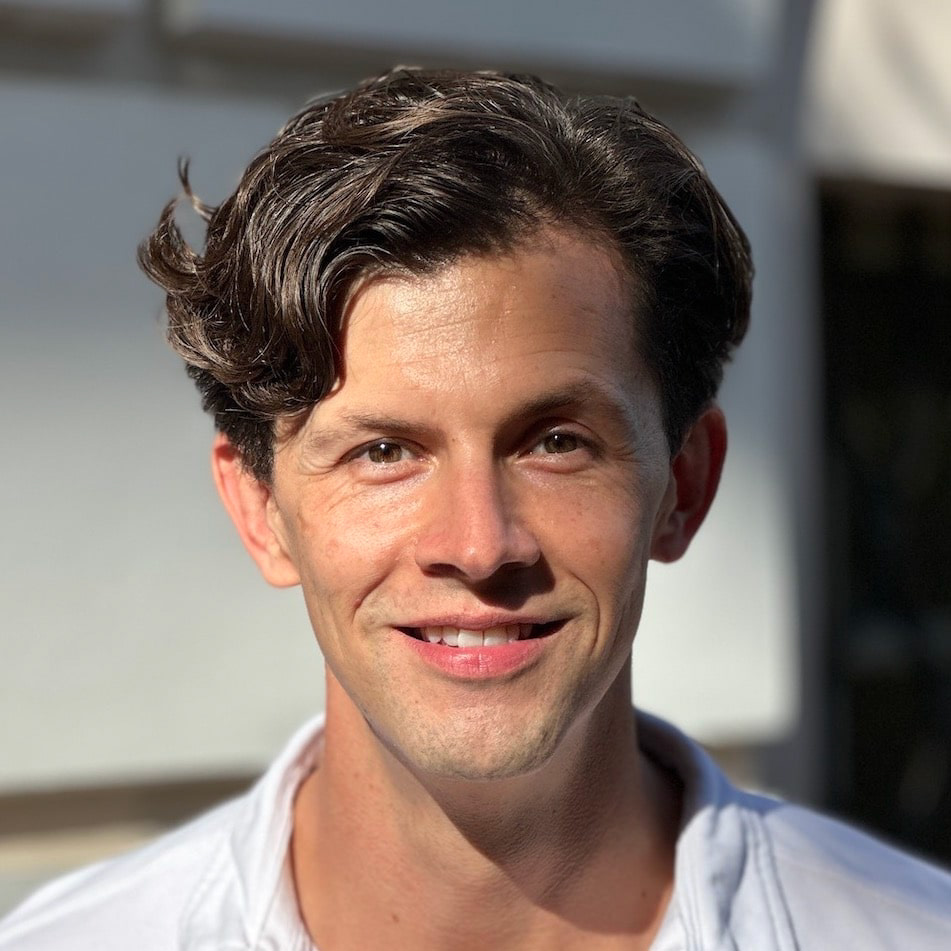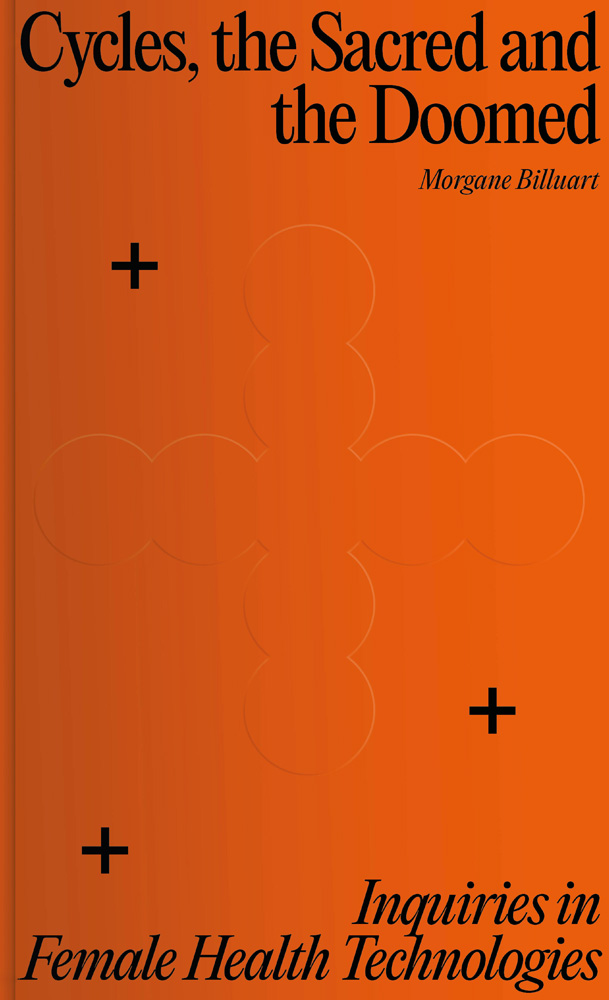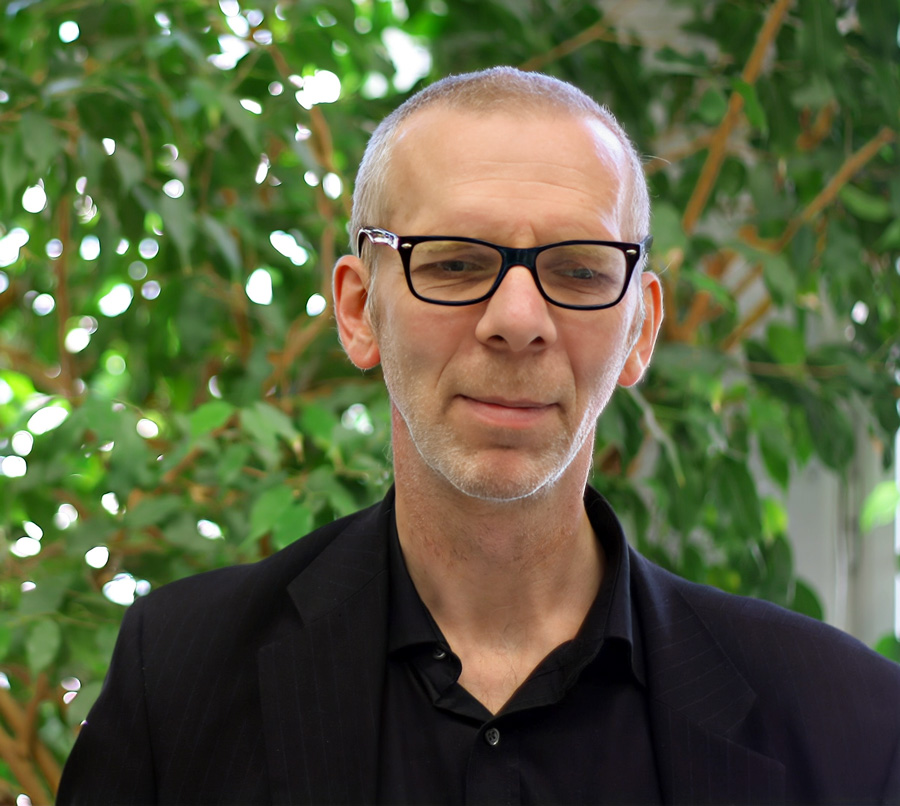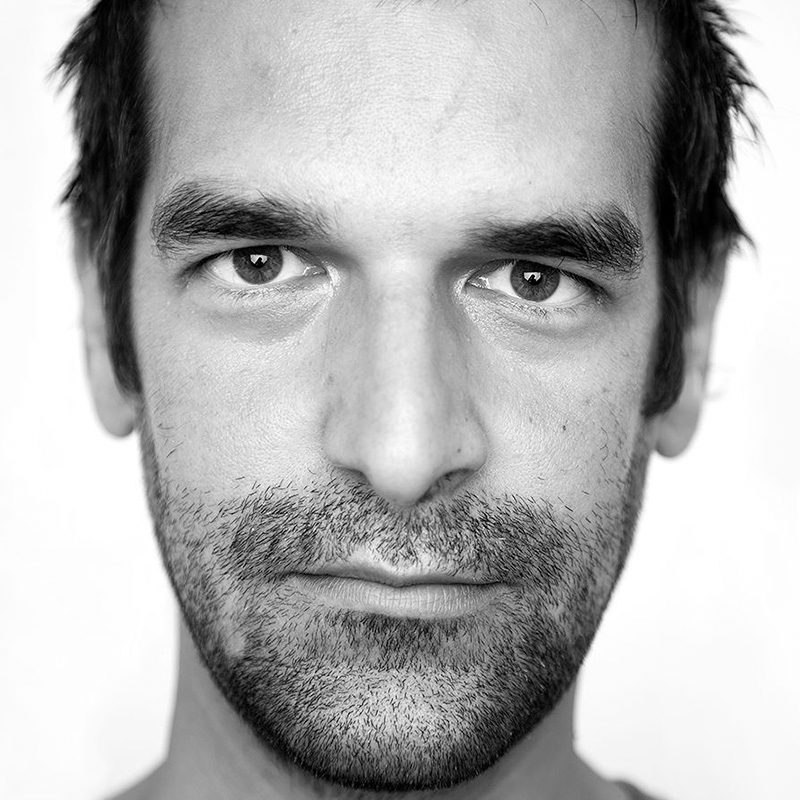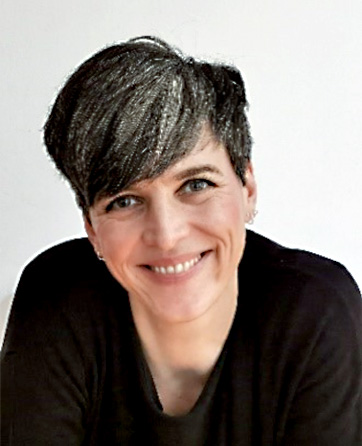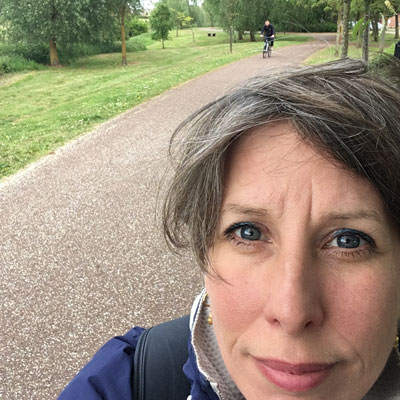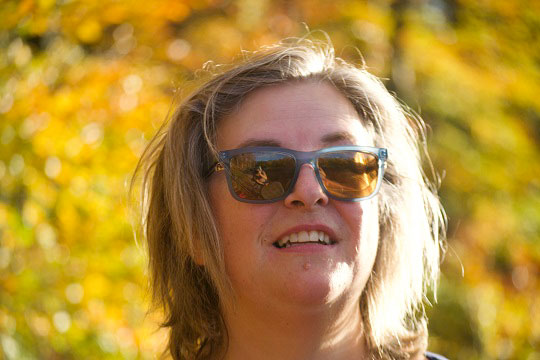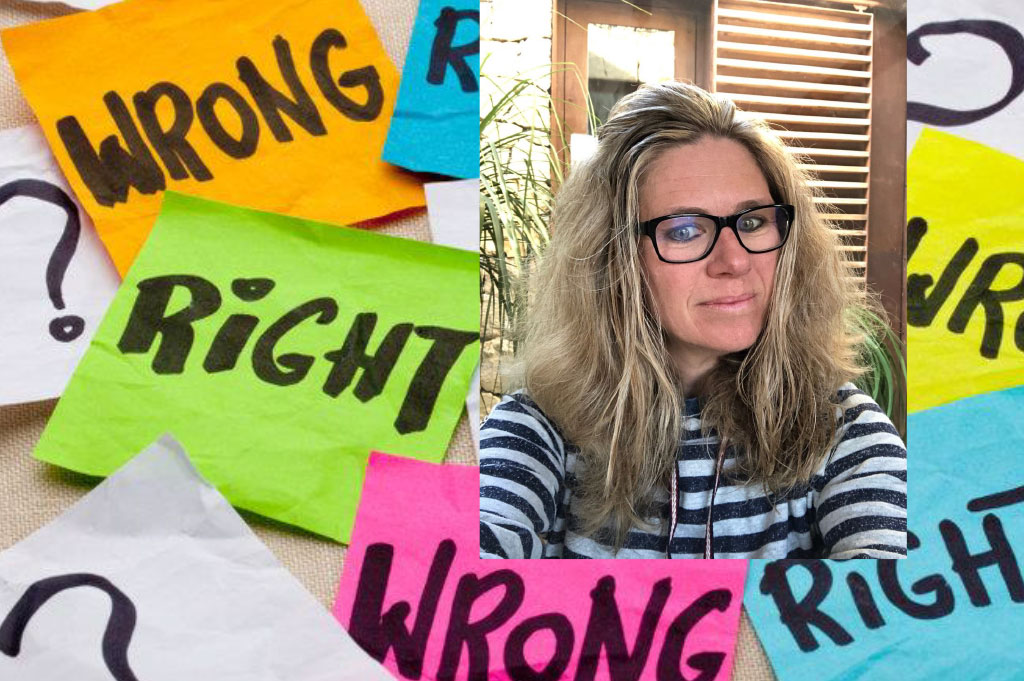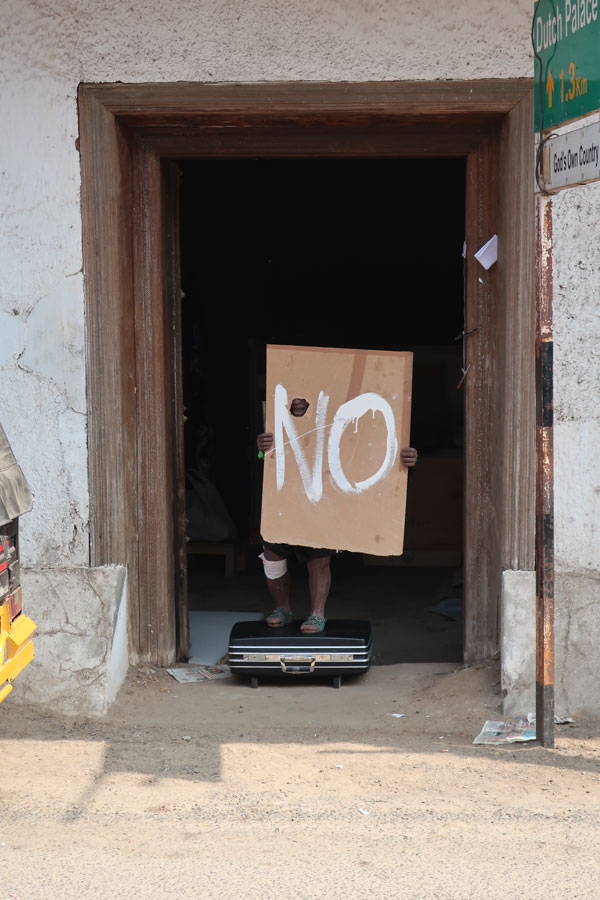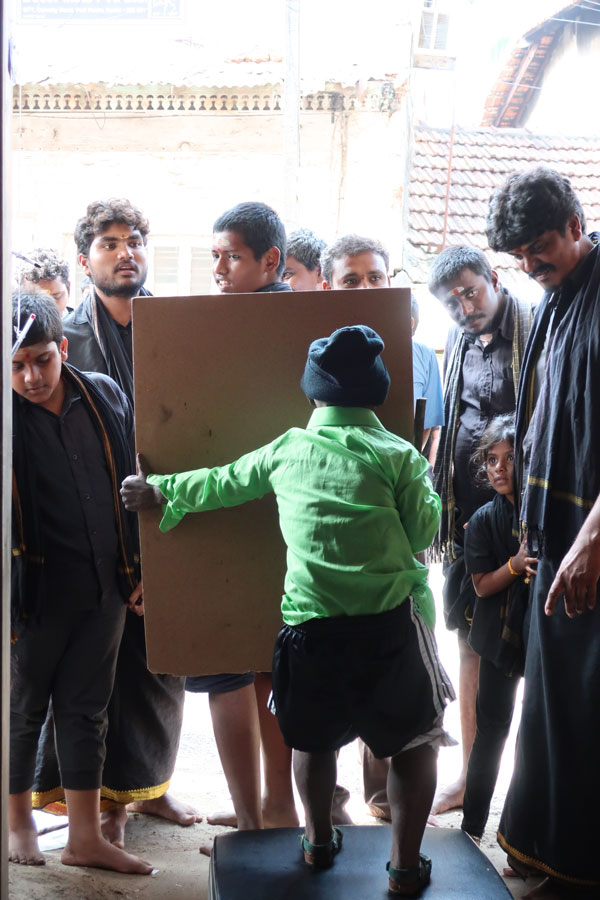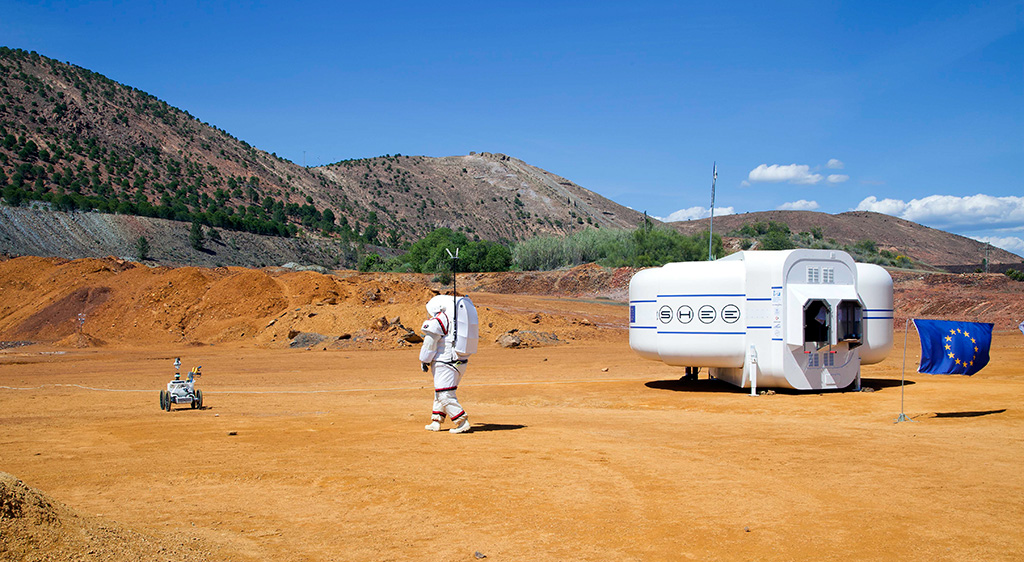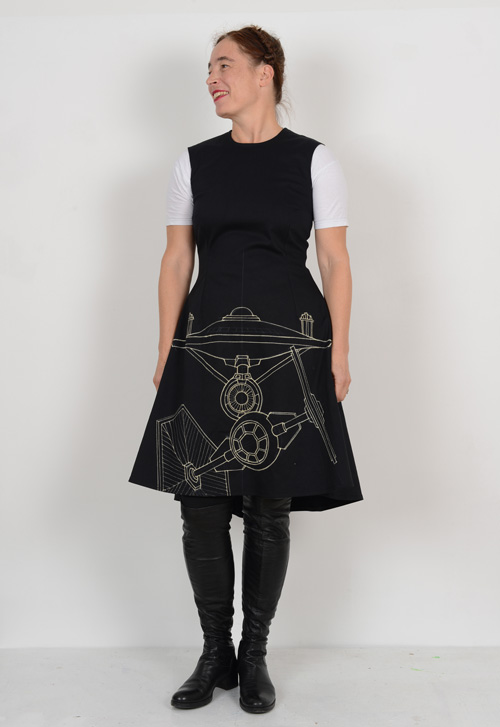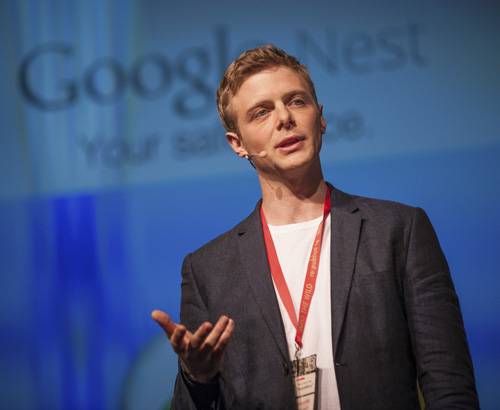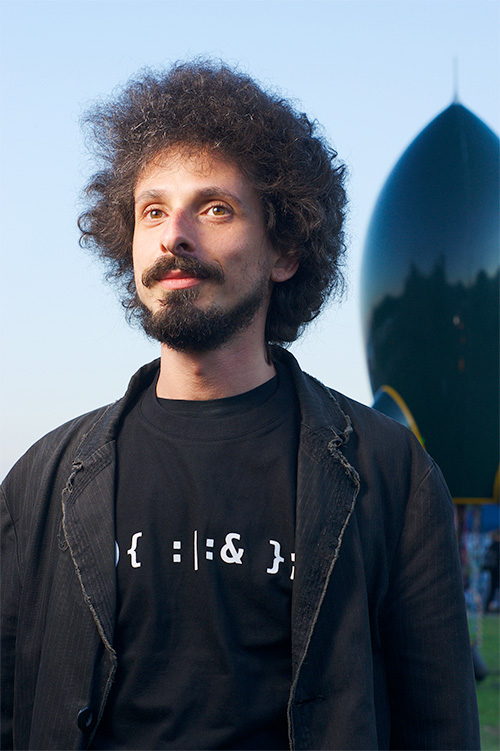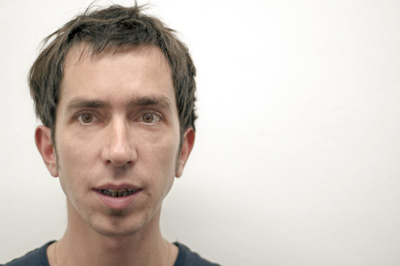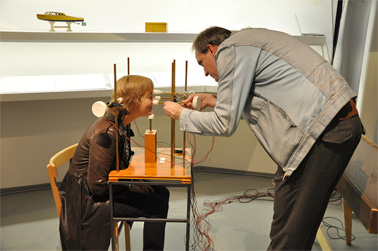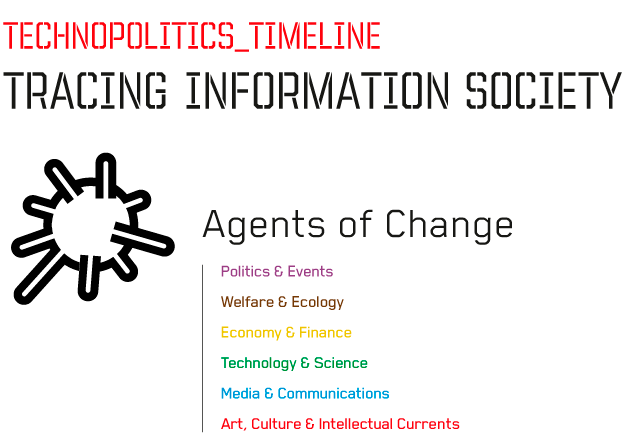Too blind to see
Über Datenkolonialismus, AI und (anti-)imperiale Intelligenzen
Datenkolonialismus beschreibt die jüngste Welle der Metrisierung, Verdatung und Quantifizierung der Gesellschaft. Wie der Imperialismus zu Land hat der digitale Kolonialismus eine ökonomische Dimension: Alles wird Ressource insbesondere Daten über unser Verhalten, woraus wenige eine große Anzahl an Gewinnen abschöpfen. Anders als bei anderen disruptiven Technologien werden insbesondere durch AI die „Weapons of Math Destruction“ auf den Bereich des Denkens, der kreativen Produktion, der Komposition und der Autorschaft ausgerichtet. Was aber hat dies für Auswirkungen auf unsere kognitive Praxis? Aus wissenschaftshistorischer Perspektive sind zwei Dinge auffällig: Zunächst führt bereits die Geschichte der Daten direkt in die Kolonien: Die ersten Zentren der Kalkulation werden im Auftrag frühneuzeitlicher Imperien gegründet und diese legen den Grundstein für die umfängliche Indizierung von Mensch und Natur, noch bevor der bürokratische Staat im 19. Jahrhundert Methoden perfektionierte, das Individuum adressierbar, klassifizierbar und lesbar zu machen. Im Kalten Krieg finden sich dann erste Spuren der heutigen AI Technologien eher bei den Geheimdiensten als in den soziologischen Seminaren. Sodann ist auffällig, dass im Datenkolonialismus Wissenstypen massiv überschrieben werden: Im Sturm der Zahlen verlieren wir alles, was nicht ausreichend quantifizierbar ist, verdatet werden kann und nicht ausreichend dokumentiert wurde, die kolonialen Epistemizide vervielfältigen sich. Was aber wären Ansätze für dekoloniale Datennutzungen, was umfasst die Forderung nach Indigenous Data Sovereignty, wie operiert das Environmental Data Justice Lab oder wer betreibt Datenfeminismus?
Anna Echterhölter
ist Professorin für Wissenschaftsgeschichte an der Universität Wien. Sie promovierte zu Epistemischen Werten in Nachrufen auf Naturwissenschaftler (Wallstein 2012) und arbeitete anschließend am Institut für Kulturwissenschaft an der Humboldt-Universität Berlin. Es folgten Fellowships am Max-Planck-Institut für Wissenschaftsgeschichte in Berlin (2008, 2015) und am German Historical Institute in Washington, DC (2016) sowie Gastprofessuren für Kulturgeschichte an der HU Berlin und der Technologiegeschichte an der TU Berlin. Die Habilitation untersucht die Geschichte der Metrologie aus Sicht der Geistes-, Rechts- und Sozialwissenschaften. Es folgten Forschungsaufenthalte in Paris, Samoa und in der Kollegforschergruppe „Applied Humanities“. Sie ist Gründungsmitglied der ilinx-Redaktion und seit 2022 Mitherausgeberin von Science in Context. Zu ihren Forschungsgebieten zählen Geschichte der Quantifizierung, Rationierung und Planung, epistemische Dekolonisation und die Wissenschaften des deutschen Kolonialismus in Ozeanien. Seit 2019 sind zudem die Enqueten über Indigene Rechte des deutschen Kolonialbüros und eine Perspektive zu indigenem Recht und sie untersucht die Kolonialstatistik im Paradigma des Datenkolonialismus im Forschungsprojekt „How is AI Changing Science“ (Bonn, Karlsruhe Wien).
Tierische Kognition, Erfindungsreichtum und Intelligenz.
Neue Perspektiven auf Tiere, Menschen und Maschinen.
Innovation, die Fähigkeit, neuartige Lösungen für unbekannte Probleme zu entwickeln, ist ein zentrales Merkmal kognitiver Flexibilität. Ihre Ursprünge in der Natur zu erforschen ist entscheidend für das Verständnis der technologischen Entwicklung des Menschen. In meinem Vortrag gehe ich der Frage nach, wie Erfindergeist und innovatives Verhalten bei unterschiedlichen Arten entstehen. Ich stütze mich dabei auf Beispiele aus meiner Forschung mit Papageien, Primaten und Kindern. Die Bandbreite reicht von innovativen Lösungen bei der Nahrungssuche über komplexes mehrstufiges Problemlösen bis hin zu hochentwickelten Formen von Werkzeuggebrauch und Werkzeugherstellung. Am Ende möchte ich zeigen, wie verschiedene Forschungsansätze von Literaturübersichten über Beobachtungen im Freiland bis hin zu kontrollierten Experimenten unser Bild von den Ursprüngen von Erfindergeist und Intelligenz erweitern.
Alice Auersperg
ist Kognitionsbiologin und spezialisiert auf die Evolution der Intelligenz bei Vögeln. Ihre Forschung konzentriert sich auf physische Kognition, das Spielverhalten, die Problemlösungsfähigkeiten und die Werkzeugherstellung bei Papageien und Corviden. Seit 2011 leitet sie das Goffin Lab of Comparative Cognition an der Veterinärmedizinischen Universität Wien, wo sie sich intensiv mit der Intelligenz des Tanimbar-Corellas, auch bekannt als Goffins Kakadu, beschäftigt. Ihr erstes Buch wurde im Februar 2025 veröffentlicht: „Der Erfindergeist der Tiere” (Brandtstätter Verlag, Wien).
Intelligenz & Phantasie
Zäumt man das generative KI-Pferd von der Technikseite auf, zeigen sich interessantere Dinge als die Science Fiction der Futurolog*innen und Mahner*innen. Die Funktionsweise generativer KI ist wie bei allen bisherigen Programmen geprägt von der Spezifizierung des Problems, das sie lösen soll. Dieses muss im Falle KI im Vorhinein sehr stark idealisiert werden.
Bei Chatbots zum Beispiel ist dies die Herstellung alphanumerischer Zeichenketten, die Nutzer*innen als „sinnvolle Ausdrücke“ deuten sollen. Die Generierung wird durch verbesserte Hardware, großen Stromverbrauch, große Datenmengen und statistische Kniffe möglich, die die Verrechnung bedingter Wahrscheinlichkeiten über große Textmengen kontextualisieren. Die Sprache wird zum Korpus aller bisher dokumentierten Äußerungen formalisiert. Ein „Sprachmodell“ wird so zu einem Buchstaben-, Wort-, Satz- und Langtextmodel, was die vielen Funktionen der Sprache zu einem Witz degradiert. Bei der Betrachtung dieser eingeschränkten Funktionsweise wird deutlich, dass die Problemlösungen nur möglich wurden, weil die bürokratische Verwaltung die dazu nötigen Daten bereits vorbereitete. Das Problem, das KI löst, ist ein menschengemacht karikaturhaftes Problem.
Psychologisch interpretiert Raab Intelligenz nicht als Problemlösung, sondern als das individuelle und kreative Suchen und Finden von Problemen. Dies kann nur auf Grundlage von expliziter Erinnerung, bewusstem Probehandeln („Denken“), Phantasie und einer ins Soziale eingebetteten Lebensgeschichte passieren.
Thomas Raab, Phantasie & Intelligenz: Zwei Essays zu künstlicher und menschlicher Intelligenz. Berlin: Parodos. 139 Seiten, EUR 14,90, mit 11 Abbildungen, ISBN 9783968240367
 Thomas Raab
lives as a writer with a scientic background in Vienna. His latest books are the sarcastic short prose collection entitled BOBOPHON (2020) and INTELLIGENZ & PHANTASIE (2025), a didactic commentary on machine learning and the psychological concept of intelligence. nachbrenner.at
Thomas Raab
lives as a writer with a scientic background in Vienna. His latest books are the sarcastic short prose collection entitled BOBOPHON (2020) and INTELLIGENZ & PHANTASIE (2025), a didactic commentary on machine learning and the psychological concept of intelligence. nachbrenner.at
Thomas Raab
Foto: Christian Hutzlinger
Buchpräsentation und Diskussion
Das Buch von Armin Medosch wird vorgestellt durch
Axel Stockburger und Thomas Thaler, Technopolitics, Wien.
Das eben erschienene Buch, The Rise of the Network Commons, liefert eine Kulturgeschichte der wireless Community-Netzwerke, die sich von ihren Ursprüngen um die Jahrtausendwende in London, Berlin und Wien nach Spanien, Griechenland, Nord- und Südamerika sowie Afrika ausgebreitet haben. Armin Medosch entwickelt darin eine zweigleisige These: Die Einbeziehung von Nicht-Expert:innen in den Aufbau eines Netzwerk-Commons hat eine tiefgreifende emanzipatorische Wirkung auf die Teilnehmer:innen und trägt gleichzeitig zu einer radikalen Demokratisierung der Technologie bei. In der Gemeinschaft beginnen wir, zukünftige Technologien so zu gestalten, dass sie lokalen Bedürfnissen und nicht kommerziellen Interessen dienen.
Die Notwendigkeit, Infrastukturen für ein anderes Zusammenleben zu entwickeln, ist seitdem nur noch grösser geworden, aber die technopolitische Landschaft hat sich grundlegend verändert. Wie können aktuelle Ansätze aussehen? Im Gespräch mit Technopolitics berichten adO/Aptive darüber, wie sie durch den Einsatz spielerischer und performativer Strategien ein offenes Netzwerk für künstlerische, theoretische und sogar soziale Experimente schaffen, das den Grundlagen der Network Commons nahekommt.
LINK Armin Medosch (1962–2017) war ein österreichischer Medienkünstler, Journalist, Kurator, Theoretiker, Kritiker und Pionier der Internetkultur in Europa. Als Kunstaktivist war er Mitinitiator der Umgestaltung des Schiffes MS Stubnitz, einem ehemaligen Hochseefischereifahrzeug der DDR, in einen schwimmenden Kunstraum (1992-1995). Er war einer der Mitbegründer und Redakteur von Telepolis (1996 – 2002), dem ersten Online-Medium deutscher Sprache. Danach folgten einen Vielzahl von kuratorischen Ausstellungsprojekten, etwa mit dem Medienkunstzentrum RIXC in Riga. Sie waren von seinem Interesse geleitet, wie Kunst und Kultur mit ihren spezifischen Möglichkeiten auf große gesellschaftliche Transformationen einwirken, beziehungsweise diese ins Bewusstsein bringen können. 2009 initierte Armin mit Brian Holmes einen Gedankenaustausch, der 2011 zur Gründung von Technopolitics führte. Seine letzten Lebensjahren verbrachte Armin in Wien.
LINK adO/Aptive (Janina Weißengruber & Daniel H. Pineda) ist ein Kollektiv, das aus dem Wunsch heraus entstanden ist, soziale Netzwerke jenseits der akademischen Welt und etablierter Kulturinstitutionen zu schaffen. Es begann 2019 als zweiwöchentlicher Lesekreis in der Off-Space-Schule in Wien. Diese Treffen dienten dazu, zeitgenössische Theorie zu rezensieren, um Themen wie die technokratischen Tendenzen von Kontrollinstitutionen, den Aufstieg der Identitätspolitik im individualisierenden Regime des Kapitals und das Leben im globalen Zeitalter der digitalen Abhängigkeit zu diskutieren. Bald darauf organisierten sie Symposien wie die rA/Upture-Konferenzen und begannen, interaktivere und anwendungsorientiertere Methoden wie kollektives Schreiben, Workshops, multimediale Vortragsperformances oder Videoprojekte einzusetzen. Diese Ergebnisse sind stets das Ergebnis kollektiver Produktionsprozesse zwischen Fachleuten aus verschiedenen Disziplinen und Laien.
Artist and philosopher focusing mainly on the ecological catastrophe and how we can culturally work with it.
Kilian will talk about the car as a metaphor for our toxic entanglements with modern lifestyles based on his new book “Das Auto und die ökologische Katastrophe” (The car and the ecological catastrophe). He will discuss the socio-psychological effects of living with ecocide and will give insight into radical activist strategies of reclaiming land like the ZAD in France.
Kilian Jörg holds a PhD in philosophy and is working internationally and transdisciplinary in various collectives, countries and disciplines. Currently he is working with the Futurama.Lab at the Academy of Fine Arts Vienna and he is affiliated to the SFB Affective Societies at the FU Berlin
BOOK: https://www.transcript-verlag.de
PORTFOLIO: www.kilianj.org
BLOG: kilianjoerg.blogspot
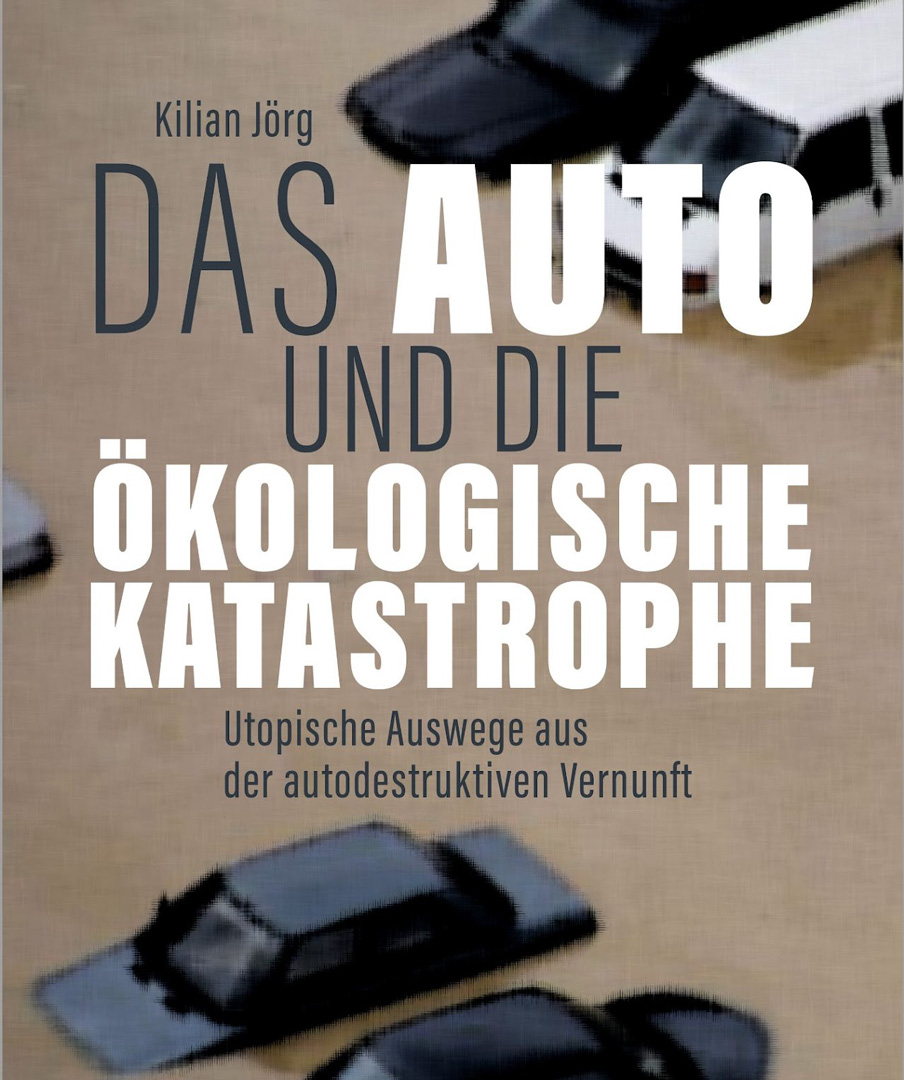
urban dynamics, science of crime and complex models related to migration
Rafael will talk about the complex dynamics of human migration; exploring the forces propelling people to move and the societal implications of these movements. He will also give an insight into his current research topic about urban sustainibility. What does the ideal city of the future look like?
Rafael Prieto-Curiel has been a postdoctoral research fellow at the Complexity Science Hub since May 2022. Before that he was at the Mathematical Institute of the University of Oxford/Centre for Advanced Spatial Analysis at University College London, working on urban dynamics at the Peak Urban project. He has a master’s degree in statistics and a PhD degree from University College London UCL in maths and security and crime. Rafael was director of strategic analysis at the Emergency Attention Centre of Mexico City where he worked on crime forecasting and police and resources allocation. At CSH, he works on mobility, migration, urban dynamics, and a demographic analysis of African cities. As an undergraduate student, he directed the Maths magazine "Laberintos e Infinitos." While studying at UCL, he founded the Maths magazine "Chalkdust" as well as the science communication website “Punto Decimal MX.”
LINKS: https://csh.ac.at/rafael-prieto-curiel/
https://www.oecd-ilibrary.org/development/cities-and-spatial-interactions-in-west-africa_57b30601-en
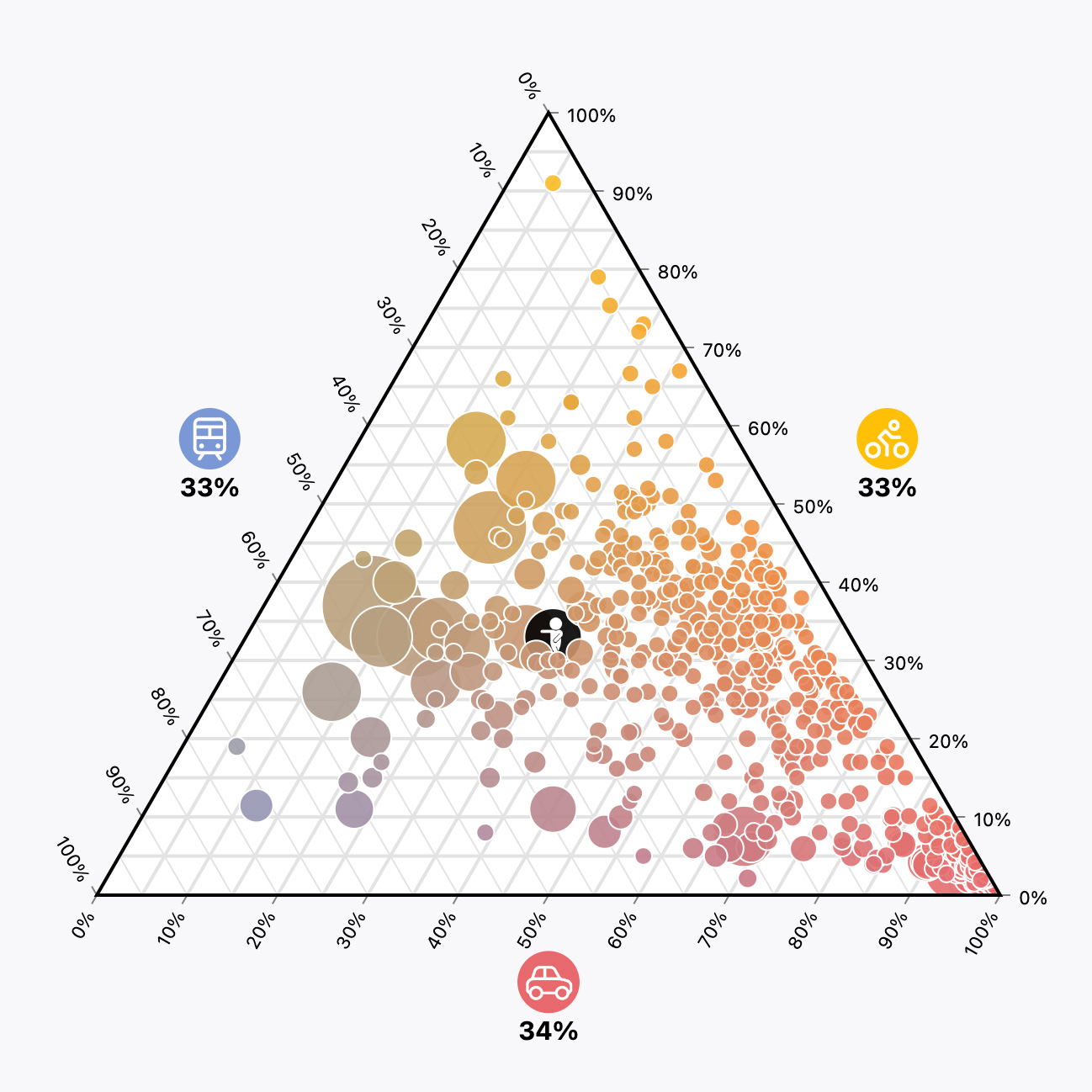
SOFT BOOK LAUNCH / FEMTECH-COREADING
Cycles, the Sacred, and the Doomed (Set Margins’, 2024)
with a co-reading by the author & Carmen Lael Hines
In a world propelled by swift technological progress and perpetual obsolescence, women frequently find themselves adapting and altering their daily experiences to remain functional. In the 21st century, as technology purports to comprehensively assess and address women’s conditions and physical discomfort, Cycles, the Sacred, and the Doomed delves deeply into the realm of female health technologies, revealing a space where science, holistic methods, and mythology converge. This book challenges the idea of combining ancient wisdom with modern innovation and takes readers on a multidisciplinary journey to explore the intricacies of female health.
During the evening, Morgane Billuart and Carmen Lael Hines will co-read a piece of text interwoven with references from the book. Quotes and other noteworthy literary pieces will be shared throughout the evening, guiding the discussion with the audience into the captivating realm of Femtech.
Morgane Billuart (1997) is a French writer and filmmaker. She completed her studies at the Gerrit Rietveld Academie in Amsterdam and pursued education at the Cooper Union in New York. In an era dominated by digital culture, the enthusiasm for DIY internet philosophies, and the proliferation of self-help seminars, her distinctive approach seeks to shed light on the contemporary dynamics of faith and belief formation. Her work consistently grapples with these themes, intricately intertwined with her identity as a woman, prompting contemplation on the roles of bodies in reshaping the technocratic and digital landscapes that encompass us. morganebilluart.com
|
|
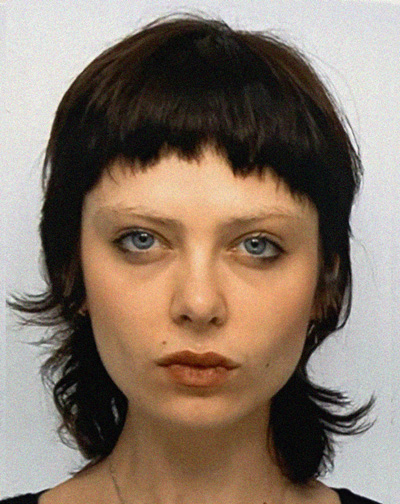
|
Carmen Lael Hines is a writer, researcher, and curator interested in tech, bodies, and the implications of their entanglements. She is currently a lecturer and researcher in the Department of Visual Cultures at the Technical University of Vienna. Her most recent works concern topics such as AI, neoliberal aesthetics, femtech, home automation, dating apps and platform urbanism. She is currently co-editing the book Dissident Practices: Posthumanist Approaches to a Critique of Political Economy, to be published by Bloomsbury. She co-curated the exhibition ‘Bordering Plants’ in the Exhibit Galerie at the Academy of Fine Arts Vienna, and was also on the curatorial team for Austria’s contribution to the Venice Architecture Biennale 2021. She has curated exhibitions/programmes at: e-flux screening room NY, The Austrian Cultural Forum NY, Architekturzentrum Wien(as part of the Claiming*Space Collective) and Galerie Kandlhofer. |
|
 |
Never let a good crisis go to waste.*
Die Folgen des Klimawandels, der Umgang mit den natürlichen Ressourcen und die schwindende Biodiversität konstituieren eine krisenhafte Situation. Von politischer Seite wird ihr mit untauglichen „symbolhaften“ Mitteln begegnet bzw. werden vermeintliche Lösungen Marktmechanismen überantwortet, die keinem Gemeinwohlanspruch unterstellt sind.
Lösungsansätze werden als Anspruch proklamiert, finden in legitimatorische Rahmenrichtlinien Eingang, entfalten aber keinen oder nur marginalen realen Nutzen. Die Krisenbewältigung findet auf einer abstrakten, virtuellen Ebene statt, wobei selbst die Erfolgskontrolle auf dieser Metaebene erfolgt.
Das zwangsläufige Scheitern auf realer Ebene ist den aktuellen Krisenbewältigungsstrategien immanent. Wachsende individuelle Betroffenheit und zivilgesellschaftlicher Widerstand in Hinblick auf die laufenden krisenhaften Entwicklungen am Umweltsektor machen den Widerspruch zwischen Anspruch und Wirklichkeit, zwischen Virtualität und Realität, zwischen Proklamation und Aktion immer deutlicher und thematisieren das Versagen einer Marktmechanismen und -regeln untergeordneten neoliberalen Sachpolitik bei der Krisenbewältigung.
In diesem Sinn bieten die laufenden Entwicklungen eine Chance, grundsätzliche Paradigmen gesellschaftlichen und politischen Handelns in Frage zu stellen.
English
The consequences of climate change, the use of natural resources and dwindling biodiversity constitute a crisis situation. From the political side, it is met with ineffectual "symbolic" means, and supposed solutions are being handed over to market mechanisms that are not subject to any claim to the common good.
Solution approaches are proclaimed as claims and find their way into legitimising framework guidelines, but unfold no or only marginal real benefit. Crisis management takes place on an abstract, virtual level, with even the monitoring of success taking place on this meta-level.
The inevitable failure on the real level is immanent in the current crisis management strategies. Growing individual concern and civil society resistance with regard to the ongoing crisis developments in the environmental sector make the contradiction between claim and reality, between virtuality and reality, between proclamation and action increasingly clear and thematise the failure of a neoliberal factual policy subordinated to market mechanisms and rules in overcoming the crisis.
In this sense, the ongoing developments offer an opportunity to question fundamental paradigms of social and political action.
Thomas Proksch runs an office in Vienna as a landscape planner and landscape ecologist and in this role has been confronted with a wide variety of problems in the environmental sector and their planning management since 1991. The focus of his activities ranges from urban planning, open space planning and landscape planning to environmental impact assessments and nature conservation reports and concepts. He also works as a university lecturer.
Thomas Proksch führt als Landschaftsplaner und Landschaftsökologe ein Büro in Wien und ist in dieser Rolle seit 1991 mit unterschiedlichsten Problemstellungen am Umweltsektor und deren planerischer Bewältigung konfrontiert. Schwerpunkte seiner Tätigkeit reichen von der Stadtplanung, Freiraumplanung und Landschaftsplanung bis hin zu Raumverträglichkeitsuntersuchungen, Umwelt- und Naturschutzgutachten wie unter anderem Naturschutzmanagementkonzepten. Daneben ist er als Universitätslektor tätig.
* Winston Churchill

Mapping Extractivism
In this talk, researcher and artist Vladan Joler speaks about his cartographic practice. He develops a visual language to analyse the multi-layered superstructures that underlie new extractivist practices.
He takes us through the different allegories and concepts presented in his recent animated movie, map and essay "The New Extractivism": step by step, from the gravity fields of Internet black holes to the architecture of our personalized prison caves to the design of the numerous parts of the engines of extractivism.
At this moment in the 21st century, we are witnessing the rise of a new form of extractivism, one that reaches into the furthest corners of the biosphere and the deepest layers of human cognitive and affective being. The stack behind contemporary technological systems expands far beyond the "technical stack" of data modelling, hardware, servers and networks. The full stack reaches into capital, labor and nature. It demands an enormous amount of each while its true costs – social, environmental, economic, and political – are hidden.
Through counter-mapping, Vladan Joler offers a new analytic and visual aesthetics that confronts planetary scale extraction.
Vladan Joler is an academic, researcher and artist whose work blends data investigations, counter-cartography, investigative journalism, writing, data visualisation, critical design and numerous other disciplines. He explores and visualises different technical and social aspects of algorithmic transparency, digital labour exploitation, invisible infrastructures and many other contemporary phenomena in the intersection between technology and society.
In 2018, in cooperation with Kate Crawford, he published Anatomy of an AI System, a large-scale map and long-form essay investigating the human labour, data and planetary resources required to build and operate an Amazon Echo device. Vladan Joler’s work is included in the permanent collections of the Museum of Modern Art (MoMA) in New York City, the Victoria and Albert Museum and the Design Museum in London, and also in the permanent exhibition of the Ars Electronica Center. His work has been exhibited in more than a hundred international exhibitions, including institutions and events such as: MoMA, ZKM, XXII Triennale di Milano, HKW, Vienna Biennale, V&A, Transmediale, Ars Electronica, Biennale WRO, Design Society Shenzhen, Hyundai Motorstudio Beijing, MONA, Glassroom, La Gaite Lyrique, the Council of Europe in Strasbourg and the European Parliament in Brussels. https://labs.rs/en/
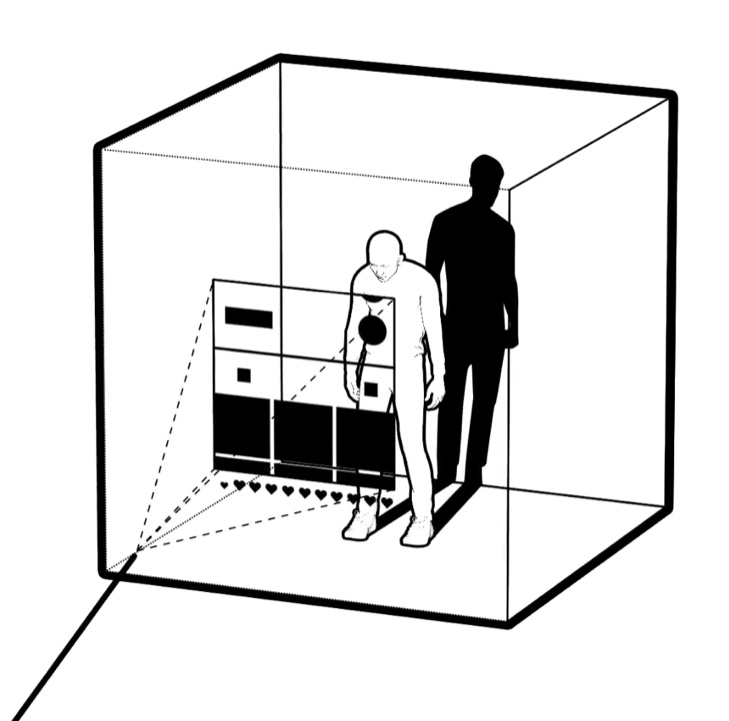
Considering Care
The COVID pandemic has both exacerbated and amplified the structural crisis of care that afflicts contemporary society. In her talk, Emma Dowling, author of The Care Crisis, will explore current political economies of care and the ways in which austerity measures, financialisation and new technologies not only shape particular configurations of care, but also the very conceptions of what care is. Beyond mere calls for more compassion, Dowling will discuss what it might mean to challenge and change the structural conditions for caring.
Emma Dowling is a sociologist and political scientist and teaches at the University of Vienna. Previously Dowling has held academic positions in Germany and the UK. Her research has covered topics such as affective and emotional labour, gender and social reproduction, as well as the financialisation of the social. Her most recent work asks what our economy looks like when viewed from the perspective of care, charting the material conditions that shape its configurations. She is the author of The Care Crisis - What Caused It and How Can We End It? (2021, Verso).

HAND archival software for artists
Hayley Newman and Bryan Reedy will talk about their project HAND, archival software for artists which they have been working on together since January 2017.
Hayley and Brian are two London-based artists. In 2016, Hayley received a grant to start to archive her performance work and Bryan Reedy helped her digitise her analogue work. During this process she began to look for a database to host her archives. She was disappointed to find that the models available were expensive, focused on the art object and sales, and didn’t provide her with what she needed: an offline archival database to store her performance work and associated research and contextual materials.
During this time Bryan built a prototype database to organise her work. Bryan is currently developing a more widely accessible, desktop version of the original web-based database. The application will be licensed under the MIT open source initiative license and aims to provide an environment that does not privilege the art object or sales but instead creates a space in which research, documentation and social context exists alongside artworks and archive materials.
Hayley Newman I am interested in performance and performativity, documentary practices, humour, subjectivity and fiction. My commitment to working creatively around the current economic, social and ecological crises forged The Gluts (Hayley Newman, Gina Birch and Kaffe Matthews) and our eco-electro musical Café Carbon which we took to the Copenhagen Climate Summit in 2009. For Café Carbon we wrote songs about food and climate. My pre-Occupy novella Common, written as Self-Appointed Artist-in-Residence in the City of London over the summer of 2011, was published by Copy Press in 2013. In Common I wrote about the economic crisis from within; as it was happening on the streets of the Square Mile. I am a tutor on the doctoral programme at the Slade School of Fine Art, UCL and was recently an Art360 award holder. Art360 is an independent charity set up to empower artists and estates to manage, protect and make their work accessible. The work Bryan and I are doing to code archival software is a development of this which we hope will contribute to thinking around archiving ephemeral practices. www.hayleynewman.org
Bryan Reedy I am an artist based in London producing paintings, sculptural works, and installations exploring the psycho-corporeal nature of objects and drawing on my personal engagement with the expression of identity (socio-political, sexual, philosophical) and the making of place.
I have a long-standing fascination for the archival impulse and in the role that design can play in broadening the voice of the fringe. I have had the opportunity to work on a number of projects that engage these interests in different ways. In 2010 I worked with The Eve Kosofsky Sedgwick Foundation to archive her estate and to present Sedgwick’s artwork on a level with her more widely known academic oeuvre. From 2012-2015 I served as the lead designer for Guillotine Publishing, an erratically published chapbook series focused on speculative fictions and radical nonfictions. The current project, undertaken with Hayley Newman and based on the process of archiving her 20+ year career in performance art, is an exciting new opportunity to explore my archiving fascination and to have a hand in setting the groundwork for a robust and responsible model of data collection and collation. www.instagram.com/bryanreedy
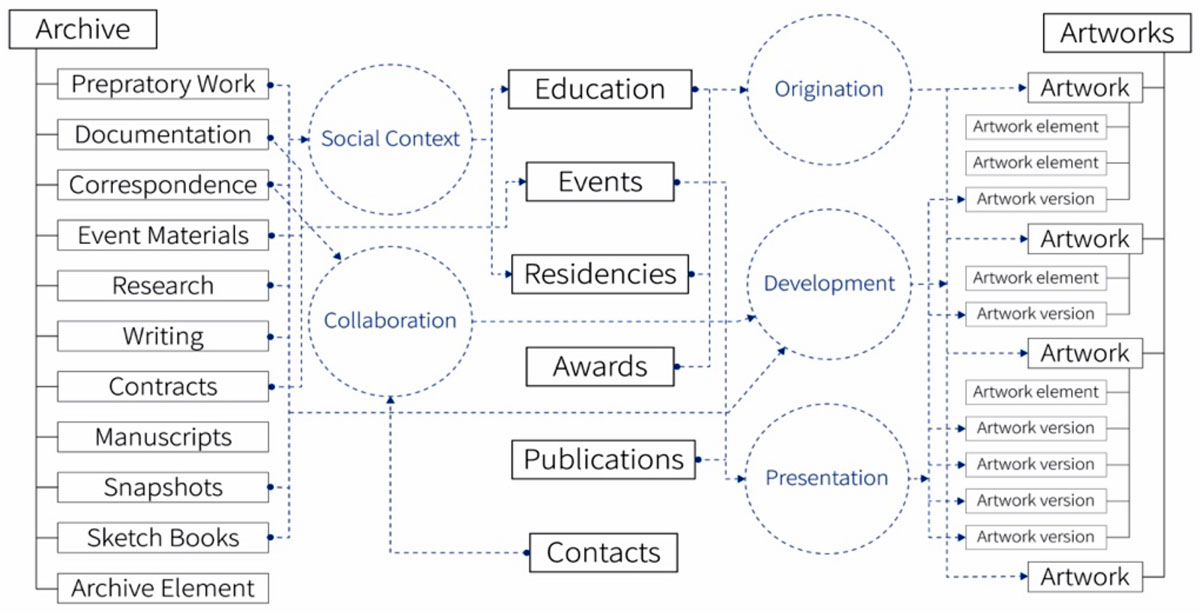
This project is supported by UCL’s HEIF Knowledge Exchange and Innovation Fund.
Link:
https://www.ucl.ac.uk/enterprise/staff/access-funding/knowledge-exchange-and-innovation-funding
Counter-cartographies: technopolitics for spatialization of information
The capturing, processing and arranging of data in space and time are organized as transversal procedures. They are applied to the purposes of life management and the generation of meaning in complex and often controversial techno-political settings. Parallel to these forms of production and delivery of visual and spatial information, regimes of (in)visibilities are defined and realities thus molded.
The presentation will have three parts. Firstly, I will discuss topics of mapping and counter-cartography as a way of making visible the complex realities generated by these procedures. Secondly, I will present two counter-cartographic practices we have conducted with architecture students in Brazil; the first example asks what can be drawn from the relationship between the expansion of an airport and the use of slave-like labor; and the second questions how we can understand a city from buildings that (de)territorialize offshore companies. Operating through articulations between spatial and social mapping these projects are focused on making visible the production of the city of São Paulo in connection to the hidden logics of economic and political power. The final part will synthesize some remarks about counter-cartographies as technopolitics tools for architecture teaching and practice.
David Sperling is Professor of the Institute of Architecture and Urbanism of the University of São Paulo and coordinator of the Center for Studies on Contemporary Spatialities at IAU-USP. He is Researcher of the National Council for Scientific and Technological Development since 2017 and member of the Editorial Board of several Scientific Journals in Brazil and abroad. He is an architect, holds a Master degree and a Ph.D. in Architecture and Urbanism from USP. Some of his projects, visual works, and cartographic projects were exhibited at the 4th, 10th and 11th International Architecture Bienniales of São Paulo and at the Storefront for Architecture and Urbanism (NYC). He was the curator of the exhibitions "Homo Faber 2.0: Politics of Digital in Latin America" (2018) and "Homo Faber: Digital Fabrication in Latin America" (2015). He was Visiting Professor at Leuphana University (Germany) in 2017 (with a grant from the Alexander von Humboldt Foundation) and from the Universidad Nacional del Litoral (Argentina) in 2014 (with a grant from the Association of Universities of the Montevideo Group). His main research topics are cartographies and mapping; space, technology, and culture; interfaces between contemporary architecture and art practices; design processes and computational technologies.
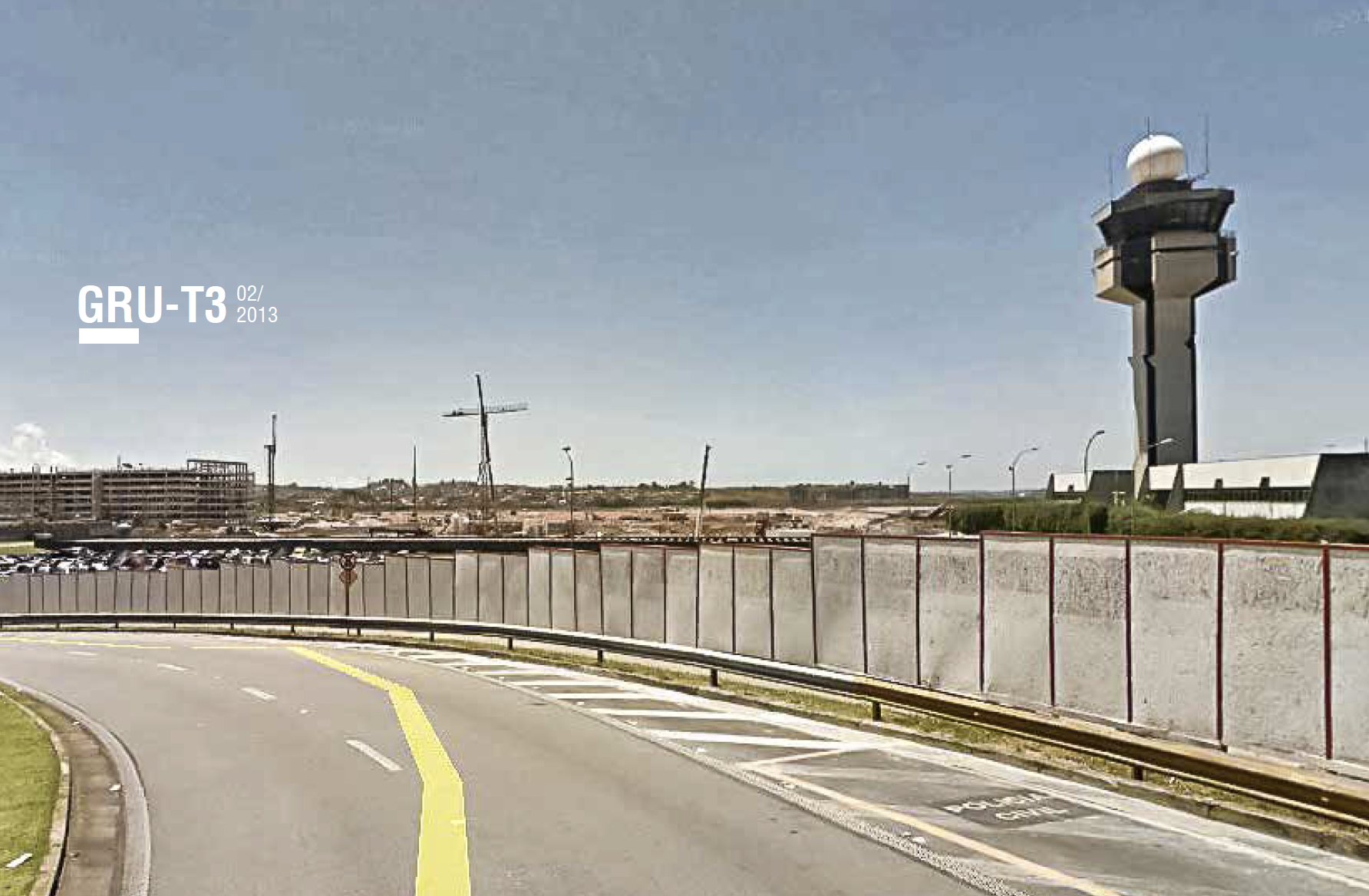
Link:
www.iau.usp.br/pesquisa/grupos/nec/
“GoT” as dialectical school for a global civil society
“Game of Thrones”, an HBO TV show based on George R.R. Martin's series of fantasy novels “A Song of Fire and Ice”, has lived for 8 seasons. Now that it has, as they say “wrapped“, we can start to understand why this show (one of so many high concept TV shows) has gained such an ardent following and such significance amongst critiques, scholars and fans.
The lecture will have 3 parts. First it will try to map out a structural model on the trans-media and socio-economic architecture of a “thing” such as GoT. What does it consist of? There is the genre of the narrative, there is the TV industry, there is the symbolic “halo” of the reception process in social media and elsewhere that can lead to a “cult”, or not.
The second part will focus on the reception, on fan and nerd culture as a specific agency of pop culture, rendering it the site of a new epoch of global politics.
The final part will try to condense a daring thesis, taking Fredic Jameson as a basis, as to why a product on a feudal fantasy world can be a vessel to make us understand the unknown horizon we are as a global industrial society evolving into.
KT Zakravsky is a trained academic philosopher (Poststructuralism, Kant, Nietzsche, Science Fiction, ethics of science and technology), writer, concept and performance artist and curator.
Current projects are the conception of a TV show, political blogging on Facebook and elsewhere, the performance projects “ViennaSchoolOFF” and “Teatro Antifragile”. 2018 collaboration with Klaus Spieß and Lucie Strecker on performative installations on microbial agency and micro-performativity. 2015-2017 artist in residence in seeLab, Seestadt Aspern, 2017 head of project “L>FiST” on the disappearance of 7 ficticious characters from Seestadt Aspern involving social media storytelling, multimedia installation and performance.

Links:
https://www.facebook.com/ladyzakray
https://planetzakra.wordpress.com/
http://yt.vu/c/UCpeDL20T71R6utSoYjZx7CQ
Film Screening and Talk: Красная звезда / RED STARS
Красная звезда / RED STARS is a film that engages with Alexander Bogdanov’s science fiction novel “Red Star” (1908), which envisions a utopian society on Mars and it’s contemporary reception in the context of contemporary renewed efforts to colonize Mars. RED STARS relates to central topics of Bogdanov’s pre-revolutionary socialist imagination, reaching from collectivity and identity, over gender relations, art, science towards economy and education, through the use of interviews with, among others, Alexander Malinosky, Alla Mitrofanova, Pavel Arseynev, Anastasia Gacheva, Anna Gorskaya, Alexandra Simakova and Boris Klushnikov.
Axel Stockburger will introduce the project and briefly contextualise Alexander Bogdanov’s position in relation to contemporary discourses related to the current ecological crisis. The film is presented in Russian with English subtitles.
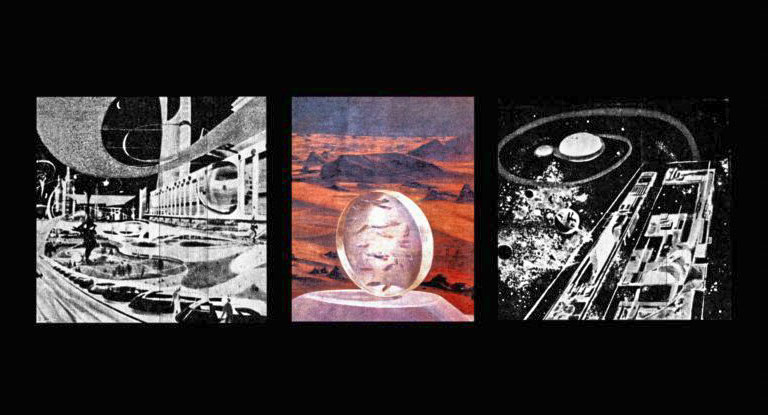
Axel Stockburger is an artist and theorist who lives and works in Vienna. He studied at the University of Applied Arts in Vienna with Peter Weibel and holds a PhD from the University of the Arts, London. His films and installations are shown internationally.
Among other projects he has initiated the independent art television channel TIV in Vienna in 1998 and collaborated on international projects with the London based media art group D-Fuse (2000-2004). At present he works as Associate Professor in the Department for Art and Digital Media at the Academy of Fine Arts in Vienna.
Axel Stockburger is a member of Technopolitics since 2011.
stockburger.at
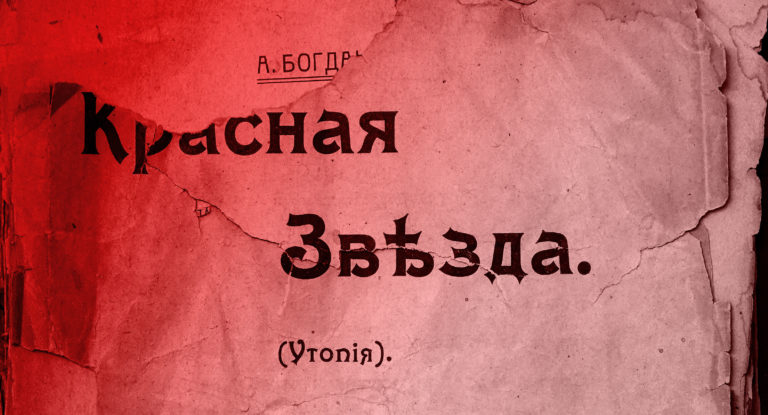
Trademarks and morality: should we give a f—k?
Take the following words: fucking hell, paki, hitler, mafia, screw you, fucking freezing, bin laden, weed, ETA. Do you find them offensive?
The words mentioned above are all trademarks. Some were refused on moral grounds. In this talk, we will explore how such borderline trademarks are treated by the EU authorities in the context of the general moral landscape of liberal society.
Trademarks are powerful means of communication. Their selling power is deeply connected to how unique and persuasive they are. Trademarks are also a form of commercial expression, which is protected as a freedom by the EU Convention on Human Rights, with a crucial limitation: the trademarks should not be disturbing, or offensive, or insulting, or threatening. For this reason, in the EU – a mixture of ethnicities, religions and cultures - the law on trademarks establishes that “signs which are contrary to public policy and accepted principles of morality” may not be registered as trademarks.
The landscape of immoral trademarks is continuously evolving. Ethical standards change, as do political regimes. Is it enough to argue for a delicate balance between this freedom and its boundaries? Or are there other pressing issues in the relation between trademarking and other freedoms that need to be dealt with?
So, what does the perception of a trademark tell us about society? To what extent do the trademark decisions taken by EUIPO and the European Courts authorities accurately mirror the views in society on what is moral or immoral, what is good and what is evil?
Susy Scardocchia is an Italian-Austrian trademark lawyer. After growing up in Italy, China, Austria and the United States, she graduated from the University of Turin, worked as a lawyer in Rome and then moved to Alicante, Spain in 2001, where she has lived ever since (except for two years spent travelling ), working at the EU Intellectual Property Office (EUIPO) as a legal specialist in the Boards of Appeal.
Ines Doujak and John Barker will talk about two visual works “Economies of Desperation” and “Silk Road” which deal with different sides of the present world political economy. One with the effects of war, debt, land grab and the war on drugs, how they overlap and are most visibly shown by involuntary migration. The other with the absolute confidence of the present Chinese leadership in creating a new world based on large scale infrastructure mostly in the interests of an international trade in which those stuck in economies of desperation do not appear, but are functional to.
The talk will talk of how art can make for a view of the world whereby things not kept separate are visualised together. It will be in English and some, no doubt in German.
Ines Doujak and John Barker live in London and Vienna, and work together through a common interest in the political dimension of cultural exchanges. Since 2010 they have collaborated on exhibitions like
2018 Kochi Muziris Biennale, Kerala, India; ´50 Jahre nach '50 Jahre Bauhaus' 1968´, Württembergischer Kunstverein Stuttgart; ´A BEAST, A GOD, AND A LINE´, Dhaka Art Summit ’18, Bangladesh; Para Site, Hong Kong; TS1 Yangon Myanmar; Museum of Modern Art, Warsaw, Poland 2017 ´The Conundrum of Imagination´, Leopoldmuseum, Wiener Festwochen; ´Stealing from the West´, Academy of the Arts of the World Cologne 2016 ´Not Dressed for Conquering´, Württembergischer Kunstverein, Stuttgart; ´Transcultural Flux´, Stiftelsen 3, Bergen and Akershus Kunstsenter, Lillestrom; ´The Next Big Thing is Not a Thing´, Bureau Europa, Maastricht; Peace-Treaty, San Sebastian; Sans peau / No Skin, SBC Gallery of Contemporary Art, Montreal, QC 2015 ´The Beast and the Sovereign´, MACBA, Barcelona; ´Ape Culture´, HKW, Berlin; ”Social Glitch´, Kunstraum Niederoesterreich, Vienna; ”Creating Common Good“, Kunsthaus Wien; ”All Men become Sisters”, Muzeum Sztuki, Lodz; ”Notes on Crisis, Currency and Consumption“, Galerie Raum mit Licht, Vienna; ”The Value of Food“, Saint John the Divine, New York; ”to expose, to show, to demonstrate, to inform, to offer“, MUMOK, Vienna; ”The School of Kyiv“, Kyiv Biennal 2014 ´Universes in Universe´, Biennial São Paulo; “Fields“, National Art Museum, Riga; “Into the City“, Wiener Festwochen, Vienna 2013 ”October Salon”, The Cultural Centre of Belgrade, Belgrade; ´Not Dressed for Conquering´, Royal College of Art, London 2012 ”Unauthorized“, Inter Arts Center, Malmoe; ”Acts of Voicing”, Württembergischer Kunstverein, Stuttgart; “The Indian-Investigator-Machine visiting the TBA“ at ´Ephemeropterae´, Thyssen-Bornemisza Contemporary Vienna; ”Art and Fashion”, Museum of Modern Art, Vienna; ´Garden of Learning´, Busan Biennale, Korea.
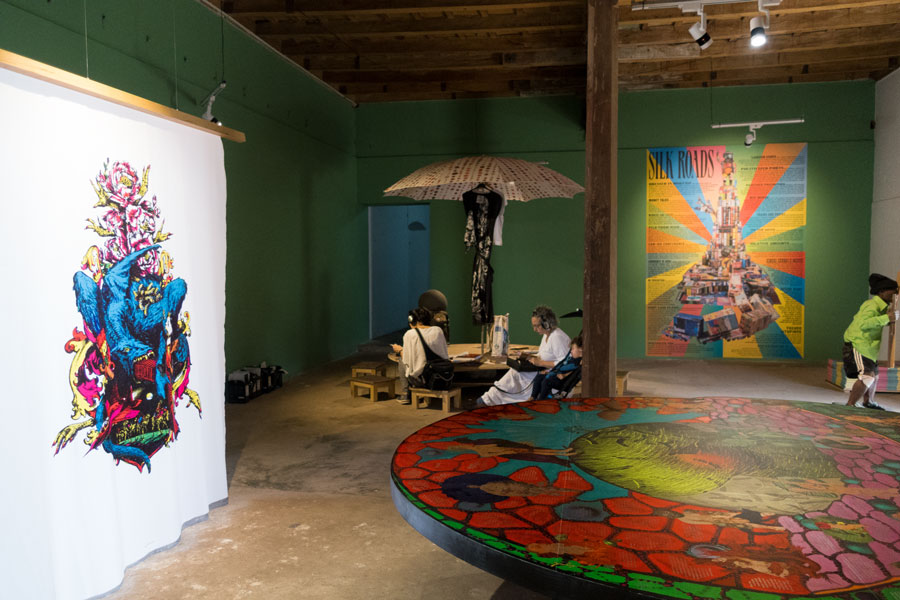
Ines Doujak and John Barker,
Kochi Muziris Biennale, Kerala, India, 2018-19 (installation)
Im Zentrum der Präsentation von Horst Ebner, Ivo Gurschler und Walter Seitter steht der Versuch die fast schon kryptischen
Gedankengänge von Pierre Klossowski besser zugänglich zu machen bzw.
einem weiteren Publikum zu eröffnen.
"LIVING CURRENCY to come”. Eine Vorahmung. Mit Andreas L. Hofbauer und Lucie Strecker.
Hg. von Horst Ebner, Ivo Gurschler und Walter Seitter, VERLAG TURIA + KANT WIEN–BERLIN
Dieser Materialienband macht sich an die Enträtselung von La Monnaie vivante / Lebendes Geld aus dem Jahr 1970. Er enthält thematisch verwandte Texte von Klossowski, ein Gespräch mit ihm sowie ein kleines »Wörterbuch« zu Lebendes Geld und drei werkgeschichtliche Essays der Herausgeber. Lassen sich Bedingungen denken, unter denen es ›legitim‹ wäre, lebende Wesen als bloße Objekte zu besitzen? Menschen als Zahlungsmittel, als neuer Goldstandard? Könnten solche Bedingungen innerhalb der sozialen Tauschbeziehungen einen alternativen Raum gegenüber der heute de facto stattfindenden monetären Prostituierung eröffnen?
(Adaptierte Neuübersetzung)
Hg. von Horst Ebner, Ivo Gurschler und Walter Seitter
VERLAG TURIA + KANT WIEN–BERLIN
»La Monnaie Vivante« erschien bei Éric Losfeld éditeur (© Terrain Vague), Paris 1970.
Lebendes Geld schrieb der Übersetzer, Philosoph und Maler Pierre Klossowski in den Turbulenzen der Kapitalismus-Kritik um 1968. Der Text verbindet Analysen zur libidinösen Struktur der europäischen Wirtschaft, Erotik und Ikonik, um nach Möglichkeit einen utopischen, jedenfalls einen anderen als kapitalistischen Weg andeuten zu können. Michel Foucault sah in dem Text ein »anthropologisches Dreieck« aus Begehren, Wert und Simulakrum aufgestellt und sprach vom »größten Buch unserer Epoche«. Heute gilt es, das in seiner entschiedenen Heterogenität subversive Buch aus dem Abstand von nahezu fünfzig Jahren neu zu lesen und zu gebrauchen.
Pierre Klossowski (1905-2001) Geboren in Paris. Wuchs in Milieus um Rainer Maria Rilke, Georges Bataille, Jacques Lacan und in theologischen Institutonen auf. Ehe mit Denise Marie Roberte Sinclair. Er übersetzte eine Reihe von Schlüsseltexten von Vergil bis Wittgenstein, seine Romane und Bilderserien transformieren eigene biographische Erfahrungen ins Surreale und Theoretische, die philosophischen Bücher werfen die Frage nach den unterschiedlichsten Lebensformen auf. Er starb in Paris.
Horst Ebner, geb. 1959, lebt als Lektor und Publizist in Wien. Bis 2016 Mitherausgeber der Zeitschrift TUMULT.
Ivo Gurschler, geb. 1979, Publizist und Doktorand im Bereich Philosophie an der Akademie der bildenden Künste Wien.
Walter Seitter, geb. 1941, Philosoph in Wien. Übersetzte Werke von Michel Foucault, Pierre Klossowski, Francis Ponge. Arbeitet an Philosophischer Anthropologie, Physik, Ästhetik. Derzeit Lektüre der aristotelischen Metaphysik in der Hermesgruppe.
Lucie Strecker, geb. 1977, forscht künstlerisch zu performativen Prozessen zwischen Bild, Text und Technologien an der Universität für angewandte Kunst Wien.
Neosentience: The Insight Engine, The Oper& — AI and radical potential cultural change
Bill Seaman will present a multi-perspective set of views related to AI.
He will discuss his book with Otto Rossler - Neosentience / The Benevolence Engine; his experimental opera - The Oper&, a collaboration with John Supko; his development of a transdisciplinary search engine as conceptual art - The Insight Engine; and the potential of great cultural change as AI becomes autonomous and self-aware.
Bill Seaman billseaman.com
Media Artist and Researcher Bill Seaman is professor at Duke University, Durham, North Carolina. He co-directs The Emergence Lab with John Supko, Media Arts + Sciences at Duke University where he teaches in the department of Art, Art History & Visual Studies. He gained a master of Science in Visual Studies from MIT, working in the then new Media Lab, The Center for Advanced Visual Studies, and in particular worked with others to invent aspects of interactive media in the Film/Video Department. He has a PhD from CAIIA – The Center for Advanced Inquiry in Interactive Art, University of Wales, where he explored the creation of generative virtual environments. He is currently working on a book on Ranulph Glanville, multiple new music albums and recently premiered an experimental generative Opera with John Supko called The Oper&, commissioned by the Mary Duke Biddle Foundation.
CAPTURING OUTER SPACE The technopolitics of interplanetary exploration and colonization
The panel is to discuss the human and nonhuman exploration of space and the rationales and cultural implications these efforts might have.
An introduction by the Technopolitics member, artist and theorist Axel Stockburger will outline the questions the event raises from a technopolitical perspective.
The first presentation by Stefano Ferretti, resident fellow of the European Space Polic Institute (ESPI) will set the outline for human space missions, their challenges and the next foreseen steps, including popular conversations of making humans an inter-planetary species, as was recently declared by SpaceX founder Elon Musk.
The space architect and design researcher Barbara Imhof will present the most recent projects of LIQUIFER Systems Group which are about designing for the unfamiliar: architecture for extreme environments and space. The projects mostly fall into the area of Research & Development and partly into fundamental research. They are collaborative in their nature and are being developed by partners across many disciplines. All space related projects discuss how humans can live together in minimal spaces without common terrestrial infrastructure and create possible future scenarios in which spaceflight plays an important role. LIQUIFER’s work fuses inter-disciplinary work methodologies, visions for an inclusive future and the aspiration to create a visible impact through long term engagement in space exploration themes.
Gerald Nestler and Felix Stalder of Technopolitics will spur the conversation with questions on the interplay of technology, politics, space and culture inbetween human and automated agents. and then invite the audience to participate in a moderated Q&A.
Panel: Stefano Ferretti, resident fellow of the European Space Policy Institute (ESPI). Barbara Imhof, space architect and design researcher, LIQUIFER Systems Group, Vienna. Gerald Nestler, Felix Stalder, Axel Stockburger, Technopolitics Research Group, Vienna.
Barbara Imhof, LIQUIFER Systems Group: http://www.liquifer.com/
Stefano Ferretti, European Space Policy Institute (ESPI): https://espi.or.at/
Was tun?
Wir leben in dunklen Zeiten, in denen sich ein resigniertes Ohmachtsgefühl breit gemacht hat, was der neuen Rechten einen fruchtbaren Nährboden bietet. Was können wir heute noch tun, in deiner Welt, in der die Waffenindustrie kaum zu stoppen, der Klimawandel mit einer Armee von Lobbyisten unserer Industrie weiter forciert wird, wo die Mehrheit der Bevölkerung unbedacht Smartphones und Googles zur eigenen Totalüberwachung nutzt und unser tägliche Freude über Schokolade oder Orangensaft von organisierter Kindersklaverei oder Gewerkschaftszerschlagung durch große Supermarktketten abhängig ist? Jean Peters von Peng erforscht gezielt neue Taktiken und Strategien der politischen Beeinflussung, die sich der Mittel von Kunst, Hacking und Aktivismus bedient. In seinem Vortrag wird er uns einen Blick hinter die Kulissen einiger Aktionen geben und mit den Anwesenden diskutieren, wie die drängenden Fragen unserer Zeit mit der entsprechenden Dringlichkeit begegnet werden können, sollten oder müssen.
Jean Peters von Peng erforscht gezielt neue Taktiken und Strategien der politischen Beeinflussung, die sich der Mittel von Kunst, Hacking und Aktivismus bedient. In seinem Vortrag wird er uns einen Blick hinter die Kulissen einiger Aktionen geben und mit den Anwesenden diskutieren, wie die drängenden Fragen unserer Zeit mit der entsprechenden Dringlichkeit begegnet werden können, sollten oder müssen.
Algorithmic Sovereignty
Hidden algorithms are growing in power and importance. Their logic is often invisible, while their results are manifest.
There is an urgent need for more awareness of decisions made by algorithms about the social and economical context in which we live. The metaphor of a “black box society” is perfect to understand the role that algorithms have taken in our contemporary and highly digitised world.
What is inscribed in such algorithms? What are the consequences of their execution and what is the agency left for the living world? What’s the role of sovereignty considering the ethic of algorithms?
Sovereignty relates to the way a community can influence an algorithm, appropriate it, distribute it, share it and create new ones.
In his Ph.D thesis titled “Algorithmic Sovereignty” Denis Roio leaves behind “in-vitro” considerations and takes a practical and participatory approach to algorithmic sovereignty by illustrating and analysing projects he has been involved in or is leading.
This way he suggests a possible path of development for Dyne.org, an interdisciplinary community of hackers, activists and artists gathered around the notion of an “independent software house” developing software not for a profit, but for its role within societies. Dyne.org research and development activities all aim at empowering communities with algorithmic knowledge to facilitate their sovereignty.

Devuan: the anatomy of a fork – https://devuan.org
Dowse: making visible the invisible – https://dowse.eu
Decode: Decentralised Citizens Owned Data Ecosystem – https://decodeproject.eu
Denis Roio, better known as Jaromil, is CTO and co~founder of the Dyne.org think&do tank. Established in 1999 and based in Amsterdam, Dyne.org is home to a community of digital artists, critical makers and free software developers with a strong focus on cryptography, peer to peer networks, decentralization and blockchain technologies. Jaromil received the Vilém Flusser Award at Transmediale (Berlin, 2009) while leading for 6 years the R&D department of the Netherlands Media art Institute (Montevideo/TBA), he is a fellow of Waag Society (Amsterdam), included in the "Purpose Economy" list of top 100 social entrepreneurs in EU (2014) and the "40 under 40" European young leaders program. Among the most recent projects he is involved in are: D-CENT, the DECODE project, Devuan, Freecoin and Dowse (ISOC NL Innovation prize 2016 special mention).
Leben im Überwachungskapitalismus
Wir ahnen es alle. Wir werden online (und zunehmend auch offline) auf Schritt und Tritt beobachtet. Während dank Snowden's Enthüllungen einiges über Überwachung durch staatlicher Organe bekannt wurde, wurde der Überwachung zu kommerziellen Zwecken weniger Aufmerksamkeit geschenkt. Dabei ist in den letzten Jahren ist eine riesige, verzweigte und stark vernetzte Industrie entstanden, die in Echtzeit Daten sammelt, verknüpft, interpretiert, verkauft und zunehmend gegen uns einsetzt - von automatisierten Entscheidungen bis zur Beeinflussung von Verhalten. Ausgehend von seinen Studien "Networks of Control (2016)" und "Corporate Surveillance in Everyday Life (2017)", zeichnet Wolfie Christl (crackedlabs.org) die Konturen und Dimensionen dieser allgegenwärtigen Praktiken nach und stellt dabei die nachgewiesenen wie auch potentiellen Folgen für persönliche Autonomie, Machtverhältnisse, Gleichberechtigung und demokratische Prozesse zur Diskussion.
Wolfie Christl lebt in Wien und ist Programmierer, Forscher, Theoretiker und Netzaktivist. Er hat von 2000-2006 bei der Wiener Netzkulturinitiative Public Netbase mitgearbeitet und ist Mitinitiator des vielfach ausgezeichneten Online-Spiels "Data Dealer", das sich mit viel Witz und Ironie dem Thema Überwachung widmet. Seit einigen Jahren forscht er intensiv zu den gesellschaftlichen Implikationen der kommerziellen Nutzung persönlicher Daten und hat ein Buch und einige umfangreiche Studien zum Thema veröffentlicht. Außerdem schreibt er unregelmäßig für Medien wie die FAZ, hat beratend bei TV-Dokus mitgearbeitet und macht gewerkschaftliche Schulungen über betrieblichen Datenschutz. Er und seine Projekte wurden u.a. in der New York Times, Washington Post, Forbes, Guardian und Le Monde zitiert.
"Romantic Technologies, Exploited People, and the Revolution:
From Hippie Computing to Data Sweatshops and Contemporary Technopolitical Movements and Practices."
In this talk I argue that our contemporary dealings with technology can be better understood by putting them in the context of the history of romanticism, which exerts its influence as today we seek liberation, escape, and unity by technological means. I show how romanticism has influenced the birth and use of computing and the internet, and how today we are still seduced by its magic and romantic promises. But there is a dangerous dialectic: like the enlightenment, romanticism has turned into its opposite: the magic of technologies is used by corporations to get our data and the promises of liberation and democracy have turned into new forms of slavery and exploitation. Can new technopolitical movements and practices do something about this? Or are they also trapped in romanticism.
Mark Coeckelbergh is Professor of Philosophy of Media and Technology at the Department of Philosophy, University of Vienna, Austria and part-time Professor of Technology and Social Responsibility at the Centre for Computing and Social Responsibility, De Montfort University, UK. He is also the current President of the Society for Philosophy and Technology. His publications include Using Words and Things (Routledge 2017), New Romantic Cyborgs (MIT 2017), Money Machines (Ashgate 2015), Environmental Skill (Routledge 2015), Human Being @ Risk (Springer 2013), Growing Moral Relations (Palgrave Macmillan 2012), and numerous articles in the area of philosophy of technology, including philosophy of robotics and ICT and topics such as language and technology, financial technologies, and machine creativity. He also actively explores questions concerning technology through collaborations with artists and curators.
Musik als soziales Medium und Glaubensgemeinschaft.
Komponieren mit Weltmodellen und kognitiven Erweiterungen
Im Zeitalter der medientechnischen Fassbarkeit des Augenblicks verändern sich auch die Rollen und Möglichkeiten der einst so ephemeren Kunstform Musik, die immer schon eine eigentümliche Mischung aus formalen Beziehungen in virtuellen Welten und sehr körperlichen, sozialen Vollzügen war.
Volkmar Klien präsentiert anhand ausgewählter eigener Projekte Möglichkeiten der Einbettung alltäglicher Vollzüge in musikalisches Tun mit Hilfe von Computermodellen und beschreibt den Halt und die Stütze am Pflock des Augenblicks, die erst die allgemeine Maschine, jene gerade im Alltag verschwindende kognitive Erweiterung ermöglicht.
Volkmar Klien (*1971 in Hollabrunn) verbrachte seine Kindheit und Jugend in Wien; fasziniert vom Musikleben dieser Stadt mit seinen gloriosen Traditionen und antiquierten Ritualen. Ausgehend von diesem Hintergrund versucht er heute die Möglichkeiten von Komponieren, Musizieren und Hören weit über klassische Konzertsituationen hinaus zu erweitern. Sein Interesse an den vielschichtigen Verbindungen zwischen den verschiedenen Modi menschlicher Wahrnehmung und den Rollen, die diese in der gemeinschaftlichen Schöpfung von Wirklichkeit einnehmen, führt ihn in die unterschiedlichsten Bereiche hörbarer, wie auch unhörbarer, Kunst. Er ist Professor für Komposition an der Anton Bruckner Privatuniversität in Linz. www.volkmarklien.com
TECHNOPOLITICS meets Migrating Kitchen
In memoriam Armin Medosch, dem Initiator von Technopolitcs, einer transdisziplinären Plattform aus KünstlerInnen, ForscherInnen, DesignerInnen und JournalistInnen widmet sich dieser Abend den Agents of Change.
Als roter Faden dient ein Kunstprojekt, das aus dem gemeinsamen Diskurs der Gruppe in den letzten beiden Jahren entstanden ist. Tracing Information Society – a Timeline ist der Titel der Zeitleiste, die anhand eines mehrdimensionalen Mappings von politischen Ereignissen, technologischen Erfindungen und kulturellen Entwicklungen zur Kritik und Überwindung der neoliberalen Informations(un)ordnung beitragen will.
Vielleicht gelingt es anhand der Einträge zu Agents of Change Perspektiven zu verschieben, die Agenten zu wechseln, neue Aktionslinien und Einträge zu finden, wie etwa den "Budapest refugee march"…
VENUE: Studio Eckermann/Nestler, Vienna, 3. Neulinggasse 9, if not indicated otherwise
Count and draw ((techno)(political)) rules in Spencer-Brown Form.
On Spencer Brown’s ‘Laws of Form’.
Technopolitics – Entropy.
Cryptocurrencies as Experimental Systems: bitcoin and altcoins between tech-utopia, playful experiments and real markets.
Cultures of Knowledge Production within and for the Movement for the Basic Income.
The Broken Mirror,
Zusammenfassung der FIELDS exhibition Thematik.
Die Kultur der Digitalität.
Quantitative Easing for the Street.
Artistic Research on Algorithmic Finance.
12 Billion People – Counting Population And Calculating Rations..
Technological Singularity – Eschatology of Machinic Capitalism.
Bloody Taylorism and Cognitive Capitalism. Results of his and Ines Doujak’s research Loomshuttles, Warpaths.
Counting versus Narration. Betrachtungen zur Datenbank als
politische Form aus einem palästinensischen Flüchtlingslager im Libanon.
File-sharing and Disorderlyness.
Technopolitics and Technofinance.
Technopolitics Kategoriensystem aus Sicht der Science Studies.
Zoopolitics in Chandigar.
Ökologische Krisenszenarien.
Zum Begriff des techno-ökonomischen Paradigmas.
Technopolitics evening
Technopolitics, Vorstellung der Themen und Problemstellungen.



 Thomas Raab
lives as a writer with a scientic background in Vienna. His latest books are the sarcastic short prose collection entitled BOBOPHON (2020) and INTELLIGENZ & PHANTASIE (2025), a didactic commentary on machine learning and the psychological concept of intelligence.
Thomas Raab
lives as a writer with a scientic background in Vienna. His latest books are the sarcastic short prose collection entitled BOBOPHON (2020) and INTELLIGENZ & PHANTASIE (2025), a didactic commentary on machine learning and the psychological concept of intelligence. 
